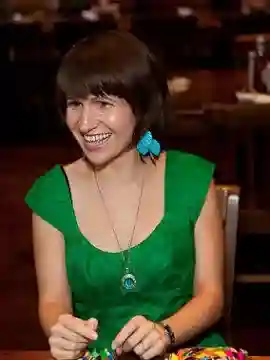The Twelve is Justin Cronin’s sequel to the generations-straddling vampire epic The Passage, the second in a trilogy that will be completed in 2014 with The City of Mirrors. And when I say vampire trilogy, I certainly understand your hesitation. “I’m a grown-up,” you might argue. “I read grown-up books.”
But this is a grown-up book. The Passage and The Twelve are two-thirds of a vampire trilogy written by the man who brought us Mary and O’Neil: thoughtful, passionate, measured. The Passage is a saga spanning the continent, a century, and the depths of the human heart. To say that I love the first novel would be an understatement: I devoured it like Cronin’s virals devour human blood. I lived this book, breathed it and dreamt it and thought of nothing else for weeks. To say the least, my expectations for its sequel were stratosphere-high.
So were those expectations met? In two words: and how. Cronin somehow expanded his universe and made it more intimate at once. He introduced new characters and revealed stunning new aspects of characters we thought we knew. He took the game board of his world, picked it up and shook it, shuffling all the pieces around to form new alliances and conflicts and dynamics, each as compelling as the last.
Cronin’s greatest strength may be his ability to dart from narrative to narrative, leaving each thread in a tantalizing cliffhanger in order to jump to a new time and place and point of view, all without leaving the reader frustrated or dissatisfied with the change.
The abrupt break in The Passage is a perfect example: he spends hundreds of pages following the just-after-present-day lives of those most relevant to the fall of man and the release of the virus, with a particularly breathtaking chapter devoted to the solitary months spent by Amy, the young woman infected by the virus but whose mind and form remain her own, and Wolgast, the military man who gathered the test subjects for Project Noah who has since absconded in order to protect Amy. And then, with little warning, the narrative jumps 93 years to a California colony of virus survivors. Utterly new characters with new goals and relationships in a new setting, a new world resembling nothing we know in our own or in the first half of the novel. And it’s riveting. I was every bit as absorbed in this new world mere paragraphs in.
It’s lucky that Cronin possesses this talent, because The Twelve sprints and dashes between settings and characters with equal confidence and even greater speed. After a maddeningly brief chapter following up on Amy, the colony characters and those they befriended throughout The Passage, The Twelve jumps back to the year of the fall. Not to catch up with those characters from the first half of the first book - that would be too predictable - but instead to introduce all new ones. And guess what? These characters, with new motivations and relationships and dreams and fears, are entirely as engrossing as any that have come before in the series.
We meet Kittridge, a former marine officer who’s been holding off the virals all on his own. We meet Danny, an autistic bus driver, and April and Tim, two orphaned teen siblings. We meet Lila Kyle, Wolgast’s ex-wife, and we learn much more about Lawrence Grey, a janitor at Project Noah we only briefly met in The Passage. And just as we grow attached to these characters and feel settled in this plot, just as we are spellbound by the narrative threads Cronin so deftly weaves, he jumps ahead 75 years in the future to a new time, new characters, new setting. And just as we get comfortable there, we jump again.
Every time period, every new point of view, every new setting remains as engaging and nuanced as the one before it. It’s masterful work, and would be even if each of these different tableaux had nothing to do with one another, or were only thematically linked. But instead, Cronin reveals with provocative deliberation a master plan so intricate, so brilliantly schemed, that it links these dozens of characters and plots and places more closely than we could possibly have imagined.
The man is a genius, and The Twelve, rather than diluting the impact of the first novel, only serves to refine it. The action is even more gripping than in The Passage, the characters and plotting every bit as great, and his language as piercingly gorgeous as ever. If you haven’t read the first two books in this trilogy, read them immediately. Because my hopes for The City of Mirrors are shooting straight through the stratosphere on into the ionosphere, and I have a feeling I won’t be disappointed.

About the author
Meredith is a writer, editor and brewpub owner living in Houston, Texas. Her four most commonly used words are, "The book was better."








